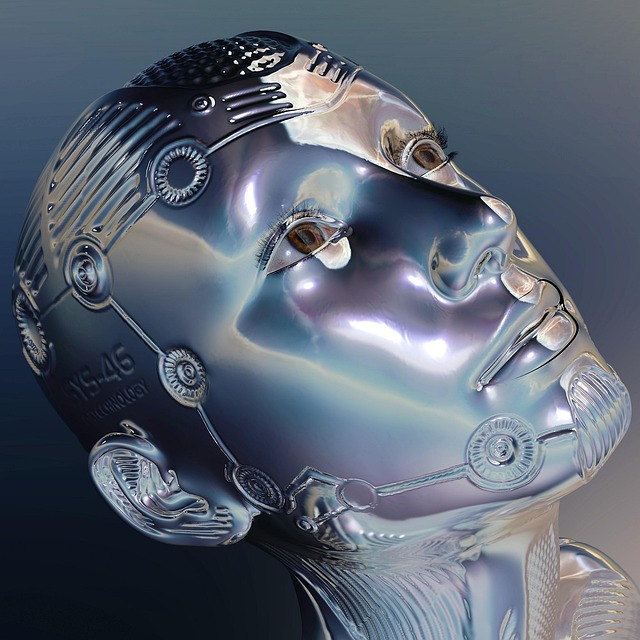
Nel bene o nel male? Robert J. Marks sul nostro futuro AI
L'intelligenza artificiale (AI) si è rapidamente evoluta, permeando vari aspetti della nostra vita quotidiana. Dal miglioramento della produttività alla rivoluzionamento delle industrie, l'influenza dell'IA è innegabile. Tuttavia, quando abbracciamo questi progressi, è fondamentale valutare criticamente le loro implicazioni. Il Dr. Robert J. Marks, illustre professore alla Baylor University e direttore del Walter Bradley Center for Natural & Artificial Intelligence, offre preziose informazioni sul futuro dell'IA e il suo potenziale impatto sull'umanità.

l'hype che circonda l'IA
la realtà dietro l'hype
Negli ultimi anni, l'IA è stata in prima linea nelle discussioni tecnologiche, spesso accompagnate da affermazioni esagerate sulle sue capacità. Il Dr. Marks sottolinea l'importanza di distinguere tra autentici progressi e narrazioni con ipotesi. Osserva che mentre l'IA può svolgere compiti specifici in modo efficiente, manca la più ampia comprensione e la creatività inerenti all'intelligenza umana.
contesto storico di hype tecnologici
Il Dr. Marks disegna parallelismi tra l'attuale hype dell'IA e le sopravvalutazioni tecnologiche passate. Riferisce lo spavento di Y2K, in cui erano prevalenti paure di diffusi fallimenti tecnologici e le interruzioni previste dai profondità e dalle auto a guida autonoma. Queste istanze evidenziano la tendenza a sopravvalutare gli impatti tecnologici senza comprendere appieno i loro limiti.
i limiti di AI e unicità umana
Aspetti non computabili dell'esperienza umana
Un tema centrale nel lavoro del Dr. Marks è il concetto di aspetti non computabili dell'esperienza umana. Sostiene che elementi come coscienza, creatività e comprensione non possono essere replicati dall'IA. Queste qualità sono fondamentali per la natura umana e rimangono al di fuori della portata delle attuali e prevedibili tecnologie AI.
la tesi della chiesa e i confini dell'IA
Il Dr. Marks fa riferimento alla tesi della chiesa, che pone che tutti i calcoli delle macchine moderne siano, in linea di principio, equivalenti a quelle di una macchina Turing degli anni '30. Questo principio sottolinea l'idea che, indipendentemente da come diventi AI avanzato, opererà sempre all'interno dei confini dei processi algoritmici, privi di vera comprensione o coscienza.
il ruolo di AI nella società
AI come strumento, non un sostituto
Il Dr. Marks sottolinea che l'IA dovrebbe essere vista come uno strumento progettato per aumentare le capacità umane piuttosto che sostituirle. Mentre l'intelligenza artificiale è in grado di gestire compiti ripetitivi ed elaborare in modo efficiente set di dati di grandi dimensioni, non può replicare le considerazioni decisionali sfumate e le considerazioni etiche che gli esseri umani portano a situazioni complesse.
considerazioni etiche e supervisione umana
Man mano che l'IA diventa più integrata in vari settori, le considerazioni etiche diventano fondamentali. Il Dr. Marks sostiene la supervisione umana nelle applicazioni di intelligenza artificiale, garantendo che le decisioni prese dai sistemi di intelligenza artificiale si allineino con i valori sociali e gli standard etici. Questo approccio aiuta a prevenire conseguenze non intenzionali e mantiene la fiducia del pubblico nelle tecnologie di intelligenza artificiale.
Il futuro dell'IA: una prospettiva equilibrata
abbracciando i benefici dell'IA mentre riconosce i suoi limiti
Il futuro dell'IA promette, ma è essenziale avvicinarsi con una prospettiva equilibrata. Il Dr. Marks suggerisce che la società dovrebbe abbracciare i benefici dell'IA, come una maggiore efficienza e nuove capacità, riconoscendo e affrontando i suoi limiti. Questo approccio garantisce che l'IA serva al miglior interesse dell'umanità senza compromettere le qualità umane essenziali.
dialoghi e adattamenti continui
La rapida evoluzione dell'IA richiede un dialogo in corso tra tecnologi, etici, politici e pubblico. Il Dr. Marks sostiene l'istruzione e l'adattamento continui per navigare nelle sfide e opportunità presentate dall'IA. Promuovendo una società informata e impegnata, possiamo sfruttare il potenziale di AI in modo responsabile ed efficace.
Conclusione
Il Dr. Robert J. Marks fornisce una prospettiva ponderata e informata sul futuro dell'IA. Le sue intuizioni incoraggiano un esame critico del ruolo dell'IA nella società, sottolineando l'importanza di riconoscere i suoi limiti e la natura insostituibile delle qualità umane. Mentre continuiamo a integrare l'intelligenza artificiale in vari aspetti della nostra vita, è fondamentale mantenere un approccio equilibrato che dà la priorità alle considerazioni etiche e alla supervisione umana.
Per discussioni più approfondite sull'intelligenza artificiale e sulle sue implicazioni, considera di esplorare le seguenti risorse:
Impegnando con questi materiali, i lettori possono acquisire una comprensione più profonda delle complessità che circondano l'IA e il suo ruolo in evoluzione nel nostro mondo.